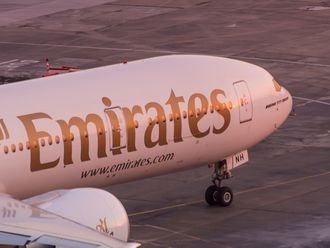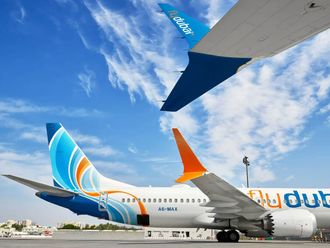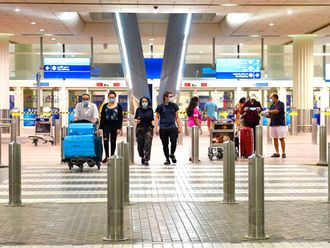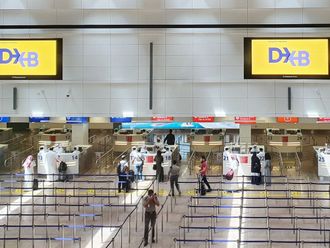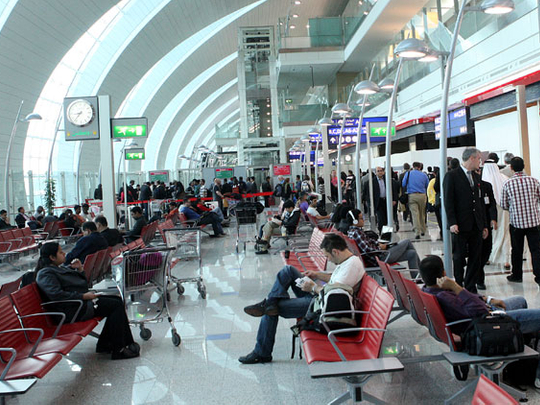
Dubai: Unlike countries that bid for a World Expo to build new infrastructure (such as airports, ports, rail and road transport systems), Dubai and the UAE are already a step ahead.
Dubai, one of the five bidding cities (besides Ayutthaya, Thailand; Sao Paulo, Brazil; Yekaterinburg, Russia; and Izmir, Turkey) to host the colossal global gathering, will be able to rely on its existing large-scale and well-tested infrastructure.
To begin with, Dubai’s strategic global location in the middle of the East and the West makes it the most sought-after destinations for the expo.
Thus matchless connectivity, efficient logistics and world-class infrastructure are at the heart of Dubai’s bid for the Expo 2020.
Location is key
The venue is another feather in the cap. The proposed Expo site, Dubai Trade Centre in Jebel Ali, is situated next to the new Dubai World Central – home to Al Maktoum International Airport, and is equidistant between Dubai and Abu Dhabi. The site, spanning 438 hectares, has been designed as a physical manifestation of Expo’s theme, and is located adjacent to Jebel Ali Port, Port, providing easy access to the 25 million international and local visitors expected.
As per recent reports, the focal point of the exhibition will be a central pavilion called Al Wasl, which means “The Connection” in Arabic. Smaller buildings will be located near the centre of the exhibition with larger buildings on the outside.
And to comply with its sub-theme of mobility, Dubai plans to build an underground railway system to connect the Al Wasl with the outer pavilions.
Airports, airlines Dubai’s two airports — Dubai International and DWC-Al-Maktoum International — are best geared to handle the expo traffic in 2020. Dubai International, for instance, will be the world’s busiest airport by 2020 in terms of passenger throughput.
And once fully developed, DWC airport will be an airport with five runways and the ability to handle 160 million passengers per annum and 12 million tonnes of freight.
As Paul Griffiths, chief executive of Dubai Airports (the body operating and managing the two airports), says: “This capacity will be needed to support the UAE’s rapidly growing role as the region’s trade and logistics hub. The UAE is the world’s third largest re-export market, exerting a strong influence on global trade flows and acting as a gateway to an international business community.”
Similarly, airlines also play a vital role in making Dubai an international hub on various fronts.
“We have 198 aircraft servicing 129 destinations, playing a crucial role in the emergence of the UAE as an international hub for trade, tourism and commerce,” said Tim Clark, President, Emirates Airline. “In terms of our ability to connect the world, there will be no other international operator with that reach, able to connect with Asia, Africa, the Americas and Europe.”
“Indeed, we’ll be serving most of the world’s cities in time for Expo 2020, opening the opportunity to make the Dubai Expo 2020 the most international yet, bringing global exposure for the participants,” he added.
Even relatively new players in the market, such as Dubai’s budget carrier, flydubai, is gearing up for the 2020 event. Having launched operations with two aircraft in June 2009, the carrier currently has a fleet of 28 Boeing 737-800 aircraft. And it has more than doubled the number of destinations 25 to 52 in the past two years.
“The commitment and clarity of vision from the UAE’s leaders has created the right environment to enable the UAE’s aviation sector to flourish. We have an aviation hub that rivals the longer established air transport centres and offers a level of service that is emulated around the world. As a result, the aviation sector has become one of the fastest growing sectors in the emirate’s economy, contributing to 30 per cent of Dubai’s GDP,” Ghaith Al Ghaith, CEO, flydubai, told Gulf News in an e-mailed statement.
“Over the last 20 years, there is not another region that has invested so much in aviation infrastructure and air transport development as the UAE and in particular the city of Dubai. Dubai is uniquely placed to leverage the years of investment across the diversity of the economic engine of the city to host the World Expo in 2020 ahead of its competitors,” added analyst Saj Ahmad of StrategicAero Research.
Logistics, infrastructure But air transport is not Dubai’s only strength. The advantages of connectivity extend to both land and sea. Dubai Logistics City, for instance, is part of a single customs-bonded free zone linked to Jebel Ali Port, the sixth-largest in the world, and the Jebel Ali Free Zone, home to more than 6,400 companies.
In what is increasingly becoming known as the world’s first truly integrated logistics platform, cargo can move between airport and seaport in under an hour there, and from there into networks of sea lanes stretching from the Indian Ocean to the Mediterranean and beyond.
“If one of the key attributes of a successful Expo is measured in the diversity and volume of international visitors, then the UAE already has the world-class infrastructure to support that, and to make it successful,” said Paul Griffiths, chief executive of Dubai Airports.


